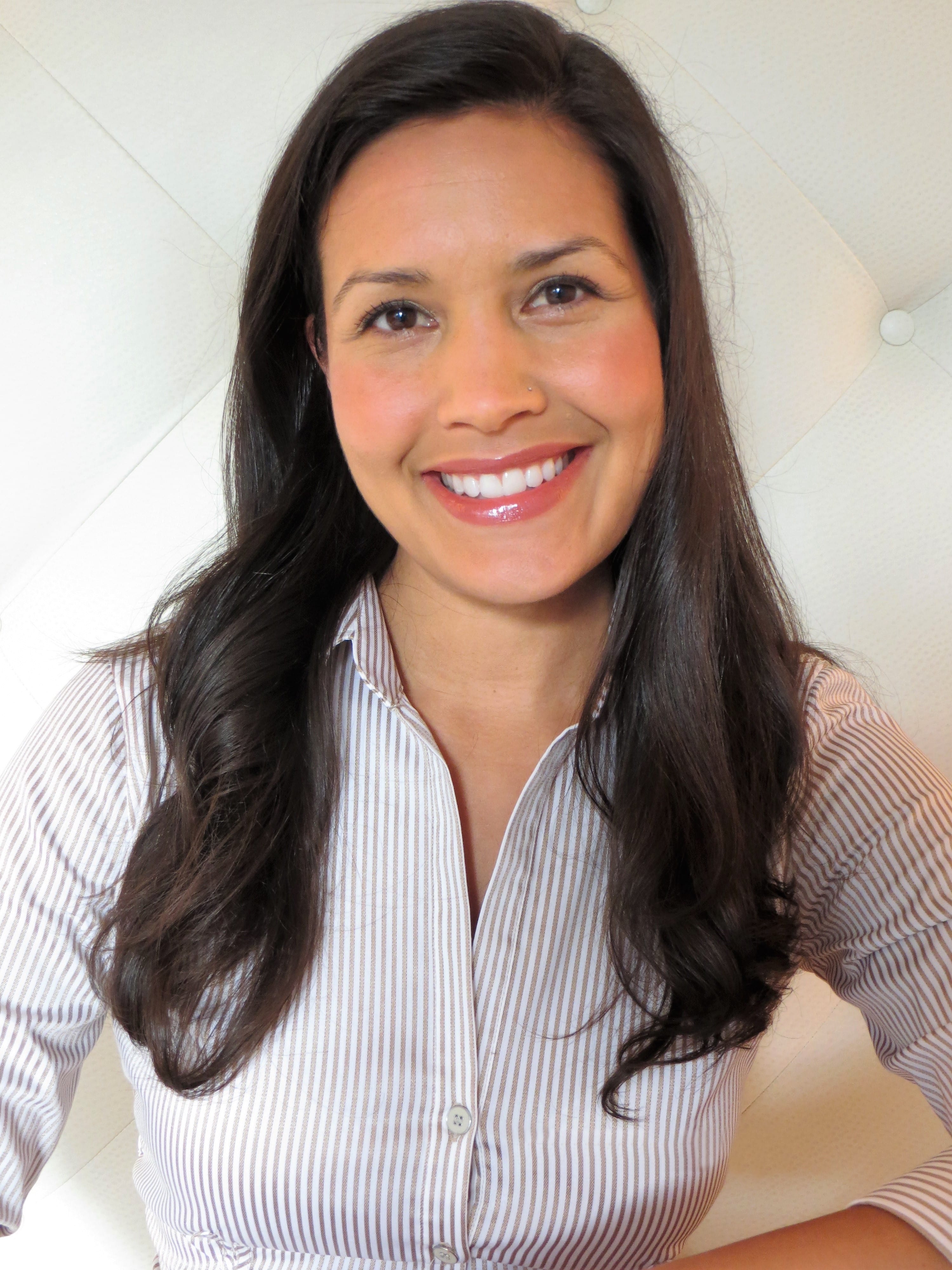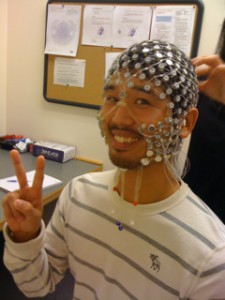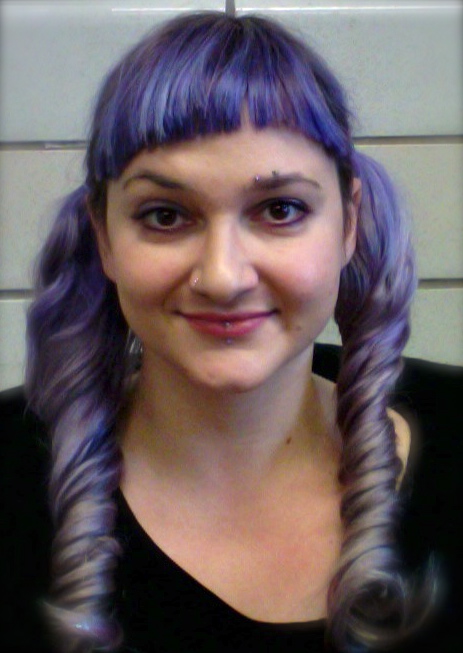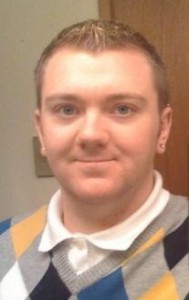Alumni
Doctoral Students
| Dr. Jessica Kosie
Jessica Kosie was a doctoral student in the Acquiring Minds Lab. She earned a Bachelor of Science from the University of Oregon in 2011 with a major in Psychology and a minor in Anthropology. She began working in Dr. Baldwin’s lab as an undergraduate research assistant and continued her work in the lab as a master’s student and now as a doctoral student. She is currently conducting research in the domain of action processing and early understanding of goals and intentions. She is also interested in the development of Theory of Mind, including both children’s ability to understand the mental states of other humans and children’s tendency to attribute human-like mental states to non-human agents (anthropomorphism). She is fascinated by comparative research and spent the summer of 2011 working at the Chimpanzee and Human Communication Institute with chimpanzees who use ASL to communicate. In her free time Jessica enjoys practicing yoga and hopes to soon become a certified yoga instructor. She also loves playing with her three cats, reading, traveling, learning ASL, and taking dance classes. |
| Dr. Lauren Vega O’Neil
Lauren Vega O’Neil, M.Ed., M.S., completed her doctorate in the Acquiring Minds Lab in Fall 2018. Lauren received her Bachelor’s degree in Biology from Saint Mary’s College, her Master’s of Education and ESL certificate from the University of Notre Dame, and a Neuroeducator certificate from the University of Portland. She is a former elementary and middle school teacher with both general ed and ESL experiences in Indiana, California, Costa Rica, Chile, and Oregon. Lauren’s research involves socio-economic influences on learning and development. Past research in the Brain Development Lab includes work involving the neuroplasticity of selective attention and intervention strategies targeting the development of attention, self-regulation and emotional awareness in low-income preschoolers. Lauren is currently conducting research on SES, analogical learning, and the associated executive functions and language processes involved. Additional research interests include educators’ impressions of the value of neuroscience, as well as neuroeducation curriculum development and implementation in professional teacher-preparation programs. In her free time Lauren enjoys running in the rain, sewing, and going on hikes with her partner and rambunctious Irish Setter. She also loves spending time with her family, traveling, and Da Bears, Da Bulls and Da Cubbies. |
| Dr. Jenny Mendoza
Jenny Mendoza was a doctoral student in Dr. Baldwin’s lab, who conducted research on music perception and cognition, exploring questions related to pattern learning in musical sequences, emotional responses to music, and how early musical experiences impact development and learning. Jenny plays French horn and piano, and she is fortunate to be a member of the UO Horn Studio. She also teaches Suzuki Early Childhood Education classes at the Eugene Suzuki Music Academy. In her spare time she enjoys hiking, camping, and baking. |
Dr. Robbie Ross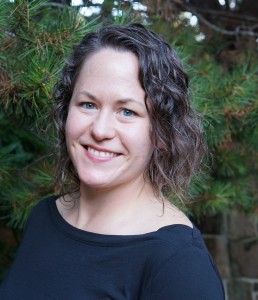 Robbie Ross earned a B.S. in psychology from Tulane University in 2005 and spent several years working in infant research. Before graduate school, she worked in a developmental neuroscience lab at Columbia University studying the effects of perinatal exposures on infant development and cognition. While in New York, Robbie also conducted research measuring infants’ understanding of the influence of emotional language on behaviors at New York University. Here in the Acquiring Minds Lab, her research has focused on understanding the ways in which children’s and adults’ executive function and cognitive control skills influence how they process and remember events. In her dissertation research, Robbie is developing a new tool using the Berkeley Puppet Interview to measure the extent to which young children have awareness of their own cognitive control skills and whether this awareness is predictive of behavioral outcomes. Robbie Ross earned a B.S. in psychology from Tulane University in 2005 and spent several years working in infant research. Before graduate school, she worked in a developmental neuroscience lab at Columbia University studying the effects of perinatal exposures on infant development and cognition. While in New York, Robbie also conducted research measuring infants’ understanding of the influence of emotional language on behaviors at New York University. Here in the Acquiring Minds Lab, her research has focused on understanding the ways in which children’s and adults’ executive function and cognitive control skills influence how they process and remember events. In her dissertation research, Robbie is developing a new tool using the Berkeley Puppet Interview to measure the extent to which young children have awareness of their own cognitive control skills and whether this awareness is predictive of behavioral outcomes. |
Dr. Rose Maier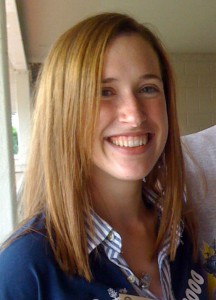 Rose Maier is a doctoral student in Dr. Baldwin’s lab. She earned a Bachelor of Science in Linguistics from the University of Wisconsin – Madison in May 2008. As an undergraduate, she was a research assistant at Dr. Hill Goldsmith’s Wisconsin Twin Project, a longitudinal study seeking to isolate risk factors for child psychopathology. After graduation, she accepted a position as lab manager at Dr. Jenny Saffran’s Infant Learning Lab (also at the University of Wisconsin) where she worked on several different studies investigating early learning, with a focus on language acquisition. Rose is very excited to be continuing her studies now as a doctoral student with Dr. Baldwin. Her research interests include social cognitive development, especially the interface between social learning and language development. She also loves to read, drink coffee, watch old movies, and spend time with friends and family. Rose Maier is a doctoral student in Dr. Baldwin’s lab. She earned a Bachelor of Science in Linguistics from the University of Wisconsin – Madison in May 2008. As an undergraduate, she was a research assistant at Dr. Hill Goldsmith’s Wisconsin Twin Project, a longitudinal study seeking to isolate risk factors for child psychopathology. After graduation, she accepted a position as lab manager at Dr. Jenny Saffran’s Infant Learning Lab (also at the University of Wisconsin) where she worked on several different studies investigating early learning, with a focus on language acquisition. Rose is very excited to be continuing her studies now as a doctoral student with Dr. Baldwin. Her research interests include social cognitive development, especially the interface between social learning and language development. She also loves to read, drink coffee, watch old movies, and spend time with friends and family. |
| Jason Wallin |
Dr. Kara Sage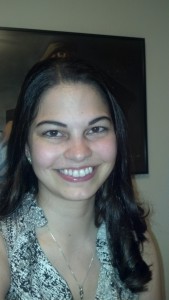 Kara Sage earned her Ph.D. from the University of Oregon in 2012. Her research interests center on children’s learning from screen media, social learning, and action processing across the lifespan. Teaching is also a passion of hers, and she enjoys teaching a wide variety of courses in developmental psychology. Kara is currently a visiting assistant professor at Hamilton College in upstate New York. In her free time, Kara loves to bake delicious desserts, watch movies, spend time with her husband, take Zumba classes, and drink good coffee! Kara Sage earned her Ph.D. from the University of Oregon in 2012. Her research interests center on children’s learning from screen media, social learning, and action processing across the lifespan. Teaching is also a passion of hers, and she enjoys teaching a wide variety of courses in developmental psychology. Kara is currently a visiting assistant professor at Hamilton College in upstate New York. In her free time, Kara loves to bake delicious desserts, watch movies, spend time with her husband, take Zumba classes, and drink good coffee! |
Dr. Meredith Meyer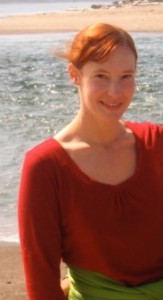 Meredith Meyer earned her Ph.D. from the University of Oregon in 2009. Following graduation, she worked for three years as a post-doctoral researcher at the University of Michigan. In 2013 she joined Otterbein University as an assistant professor, where she teaches courses in child development and research methods. Her research focuses on issues related to language development and social categorization. Meredith Meyer earned her Ph.D. from the University of Oregon in 2009. Following graduation, she worked for three years as a post-doctoral researcher at the University of Michigan. In 2013 she joined Otterbein University as an assistant professor, where she teaches courses in child development and research methods. Her research focuses on issues related to language development and social categorization. |
Dr. Jeff Loucks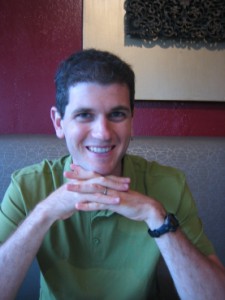 Jeff Loucks earned his Ph.D. from the University of Oregon in June 2009. Jeff’s research is focused on the perceptual and cognitive mechanisms that underlie processing of human action, in infancy, childhood, and adulthood. For his dissertation, Jeff explored the organization of memory for human action, in both adults and 6-year-old children, and also explored the influence of familiarity on action memory organization. Jeff is now an NRSA Postdoctoral Fellow at the University of Washington and Institute for Learning and Brain Sciences, working with Dr. Jessica Sommerville. |
Dr. Eric Olofson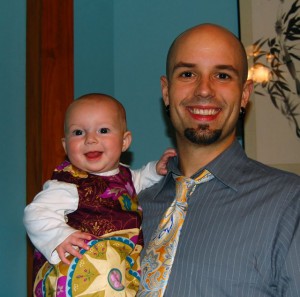 Eric Olofson earned his Ph.D. from the University of Oregon in 2008. He is now an assistant professor of psychology at Wabash College in Crawfordsville, Indiana. His teaching and research interests are in action processing in infancy and verb learning in older infants and toddlers. When not teaching or doing research, he enjoys playing with his daughter, Soren, roasting coffee, cycling, cooking, running, and brewing beer. Eric Olofson earned his Ph.D. from the University of Oregon in 2008. He is now an assistant professor of psychology at Wabash College in Crawfordsville, Indiana. His teaching and research interests are in action processing in infancy and verb learning in older infants and toddlers. When not teaching or doing research, he enjoys playing with his daughter, Soren, roasting coffee, cycling, cooking, running, and brewing beer. |
| Dr. Rebecca Brand website
Dr. Megan Saylor
Dr. Mark Sabbagh |
Masters Students
Yasuhiro Tanaka
Honors Students
Amanda Hammons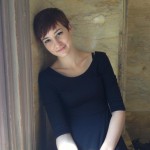 wesbite wesbiteAmanda is a senior at the University of Oregon majoring in Psychology and German. After graduation she plans on pursuing a doctoral degree, with a focus on social cognitive development. She is particularly interested in the interface between social learning and language acquisition. For her honors thesis, Amanda is exploring whether parents produce natural pedagogical cues while recasting child speech to help children recognize recasts as utterances aiming to correct grammar. In her free time Amanda enjoys good books, running, chocolate, and spending time with family and friends. |
Erika Chesnutt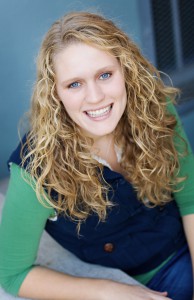 Erika is a Human Physiology and Psychology major. She is currently working on an honors thesis project regarding children’s ability to imitate action. She is interested in child development and hopes to pursue a career in pediatric occupational therapy. Erika loves children and spent last summer working at a camp for Autistic children. She also enjoys running, singing and spending time with family and friends. Erika is a Human Physiology and Psychology major. She is currently working on an honors thesis project regarding children’s ability to imitate action. She is interested in child development and hopes to pursue a career in pediatric occupational therapy. Erika loves children and spent last summer working at a camp for Autistic children. She also enjoys running, singing and spending time with family and friends. |
Natalie Brezack Natalie earned her Bachelor of Science in Psychology from the University of Oregon Clark Honors College in 2013 where she worked with Dr. Dare Baldwin on her honors thesis exploring individual differences in preschooler’s preference for infant-directed action. Natalie then worked as a laboratory manager with Dr. Roberta Golinkoff at the University of Delaware studying infant language acquisition. Currently, Natalie is pursuing a Ph.D. at the University of Chicago with Dr. Amanda Woodward studying social development, with a focus on understanding elements of natural parent teaching that promote young children’s learning. Natalie earned her Bachelor of Science in Psychology from the University of Oregon Clark Honors College in 2013 where she worked with Dr. Dare Baldwin on her honors thesis exploring individual differences in preschooler’s preference for infant-directed action. Natalie then worked as a laboratory manager with Dr. Roberta Golinkoff at the University of Delaware studying infant language acquisition. Currently, Natalie is pursuing a Ph.D. at the University of Chicago with Dr. Amanda Woodward studying social development, with a focus on understanding elements of natural parent teaching that promote young children’s learning. |
| Jennifer Paternostro A Look at the Development of Action Segmentation in Children and Adults. |
| Joshua Pritkin Theory of Mind in Cognitive Antecedents of Prohibition, Self-Sacrifice, and Protest. |
| Kenny Hartlin Controlling for Language to Observe Memory Reorganization of Action. |
| Heather Bell Gaze Cues in Mother-Child Dyads for Generic Noun Phrases. |
| Joshua Tabaldo Kids, Verbs, and Intentions: How Children Use Intentionality in Verb Learning. |
| Alicia Craven Infants’ Segmentation of Dynamic Action: The Effect of Familiarization to Novel Stimuli. |
| Kurstin Hollenbeck Action Parsing: A Study of the Role of Linguistic Labeling in the Segmentation of Action Streams. |
| Sara Stebner Adults’ Action Processing Relies on Detection of Statistical Structure. |
| Emily Neuhaus Forest For the Tress: The Weak Central Coherence Theory of Autism. |
| Rachel Nichols The Role of Mother-Infant Interactions in Language Acquisitions: A Fresh Look at the Fine-Tuning Hypothesis. |

